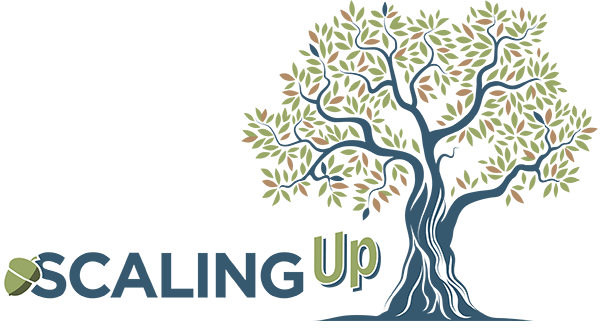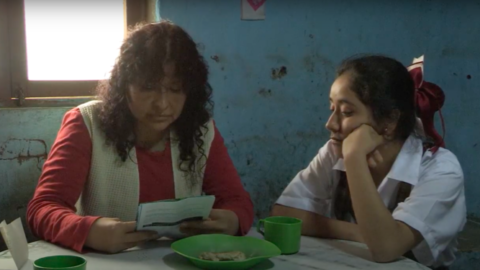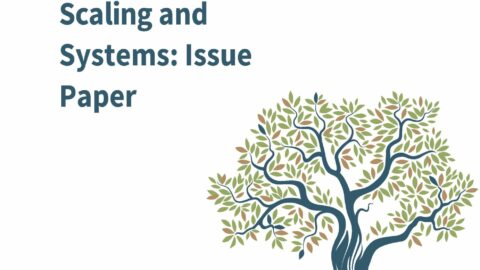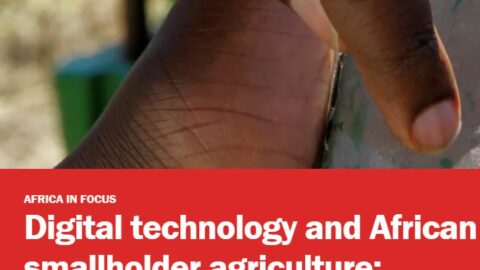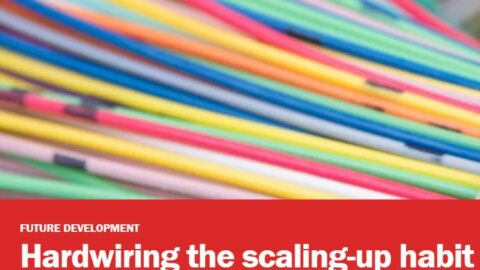By: IRC Team
Vulnerable infants and children in Lebanon, including Syrian refugees between the ages of 0 and 5, face a general lack of quality early childhood support and are frequently exposed to stressful home environments. Often, they don’t have access to pre-school or daycare services that support their early development. This is due to an unequal distribution of daycares and nurseries between central urban and rural areas. There is also a lack of unified national standards to ensure healthy, child-friendly safe and inclusive daycares and nurseries in Lebanon.
With the aim of bridging this gap and boosting children’s access to quality early childhood education, the Ahlan Simsim team started working in partnership with Early Childhood Development (ECD) actors and government entities in Lebanon. These partnerships aim to integrate ECD programming co-adapted from Ahlan Simsim/Play to Learn’s high-quality program models into national systems, leading to lasting improvement in young children’s lives.
To kick off this joint venture, the International Rescue Committee (IRC)’s Ahlan Simsim team and its national and local partners in Lebanon launched work to build strategic relationships with key ECD actors from governmental and non-governmental organizations (NGOs), with the aim of developing scaling plans with integrated policy and advocacy goals which would have a lasting impact on ECD beyond the initiative’s timeline. The goal is for key ministries within Lebanon to adequately prioritize and invest in ECD programming for all children, with an emphasis on ensuring vulnerable host community and refugee children have access to quality ECD programming.
A key part of the scaling strategy has focused on establishing deep partnerships and ownership of the initiatives by governmental organizations and NGOs, as scaling has been shown to be more successful primarily in cases where partnerships and national ownership are central. Key actors within these institutions, cultivated by the IRC Ahlan Simsim/Play to Learn team, serve as “champions” for ECD and our mutual scaling ambitions. “With their involvement, we hope the implementation will be more effective,” said Maria El Koussa, IRC Scaling and Learning Manager in Lebanon.
To ensure large-scale, sustainable shifts in ECD, the Ahlan Simsim/Learn to Play team held a scaling workshop in December of 2019 to draw out the primary ECD-related needs at the system level and identify areas of collaboration, referred to as “scaling pathways.” Participants of the workshop included representatives from the Ministries of Public Health (MOPH), Education and Higher Education (MEHE), Social Affairs (MOSA), academics, and local NGOs who are directly involved in ECD. Following the workshop, a series of meetings, interviews, and visits were held with the key champions at the MOPH, MOSA, and MEHE to initiate the scaling pathways’ collaborative design process. Three pathways were developed: the provision of quality holistic and inclusive ECD programming in the MOSA Social Development Centers (SDCs) and affiliated daycares, development and usage of evidence-informed contextualized standards and policies for healthy, child-friendly, inclusive and safe daycares, and integration of Ahlan Simsim into the MEHE official curriculum.
Pamela Zgheib, the head of the MOPH’s Mother and Child Health Department expressed a specific need for support in standardizing the approach to the inclusion of children with all abilities, “The provision of unified content by the MOPH will be of great value for children’s development. We look forward to working on standardizing ECD guidelines and services in nurseries licensed by the MOPH. We’ve already started developing contextualized, evidence-informed standards for healthy, child-friendly, inclusive and safe nurseries as part of the scaling initiative.”
Throughout the whole scaling process, the IRC’s Ahlan Simsim team and its partners learned a lot. They faced known challenges such as the pandemic and the economic crisis, in addition to new challenges following the workshops and meetings with various stakeholders. These lessons helped them better respond to scaling-related challenges and opportunities as they arose, strengthening the Ahlan Simsim scaling initiative by using real-time data to inform and adjust plans as needed.
“Scaling taught us to fall in love with the problem and not with the solution, changing our perspective on how we see things,” Chantale Kallas, IRC’s Partnerships and Scaling Advisor, said, “For the team, success looks like two things: quality ECD embedded within national systems and when other contributors take the learnings forward rather than starting from scratch. Scaling is beyond COVID and the economic meltdown. It’s very empowering that Lebanon is among the champions pushing the agenda forward in the middle of the crisis and still focusing on ECD.”
Please contact Maria El Koussa (Maria.ElKoussa@rescue.org) for questions or additional information.
